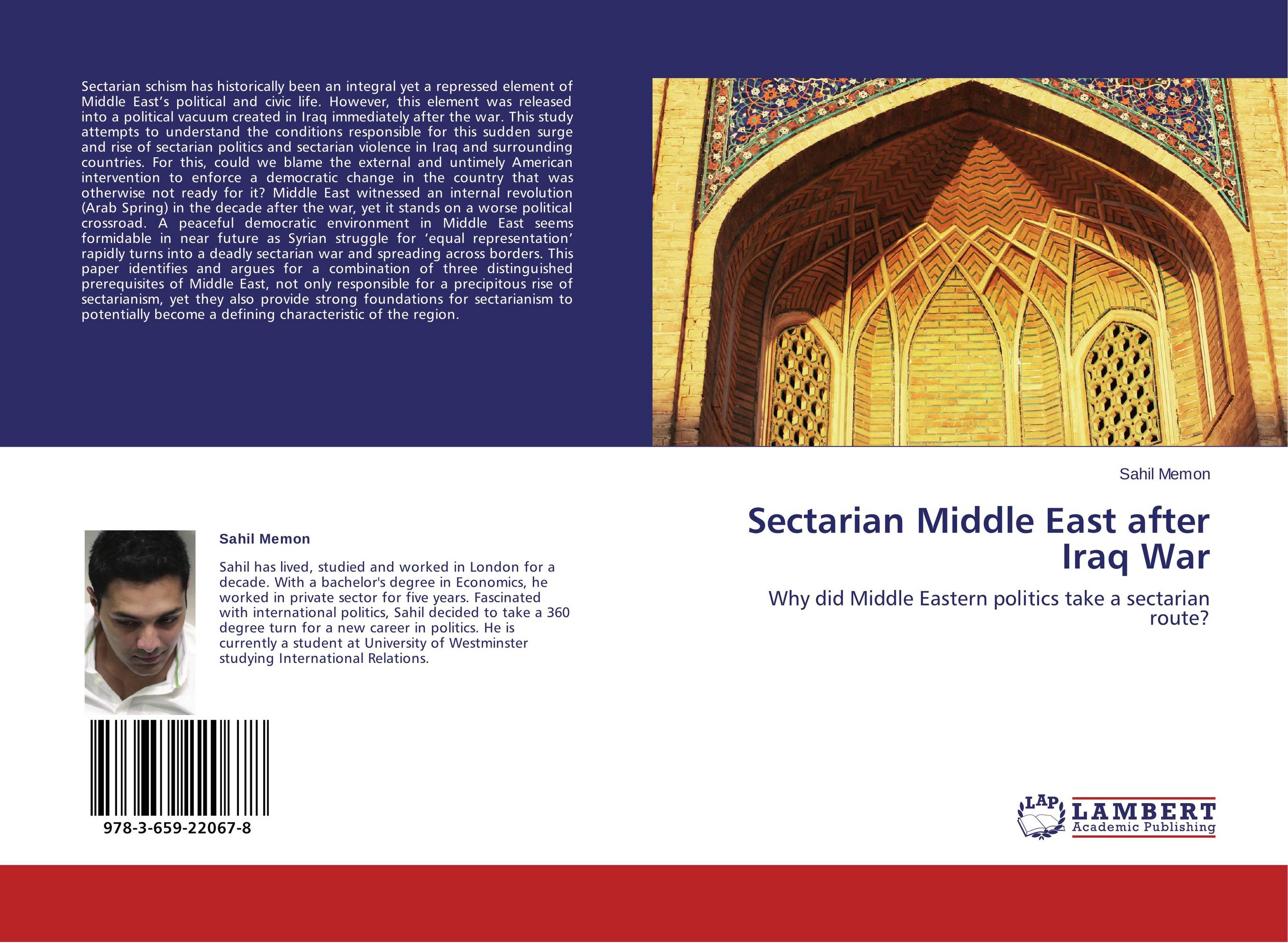| Поиск по каталогу |
|
(строгое соответствие)
|
- Профессиональная
- Научно-популярная
- Художественная
- Публицистика
- Детская
- Искусство
- Хобби, семья, дом
- Спорт
- Путеводители
- Блокноты, тетради, открытки
Sectarian Middle East after Iraq War. Why did Middle Eastern politics take a sectarian route?

В наличии
| Местонахождение: Алматы | Состояние экземпляра: новый |

Бумажная
версия
версия
Автор: Sahil Memon
ISBN: 9783659220678
Год издания: 2014
Формат книги: 60×90/16 (145×215 мм)
Количество страниц: 64
Издательство: LAP LAMBERT Academic Publishing
Цена: 23350 тг
Положить в корзину
| Способы доставки в город Алматы * комплектация (срок до отгрузки) не более 2 рабочих дней |
| Самовывоз из города Алматы (пункты самовывоза партнёра CDEK) |
| Курьерская доставка CDEK из города Москва |
| Доставка Почтой России из города Москва |
Аннотация: Sectarian schism has historically been an integral yet a repressed element of Middle East’s political and civic life. However, this element was released into a political vacuum created in Iraq immediately after the war. This study attempts to understand the conditions responsible for this sudden surge and rise of sectarian politics and sectarian violence in Iraq and surrounding countries. For this, could we blame the external and untimely American intervention to enforce a democratic change in the country that was otherwise not ready for it? Middle East witnessed an internal revolution (Arab Spring) in the decade after the war, yet it stands on a worse political crossroad. A peaceful democratic environment in Middle East seems formidable in near future as Syrian struggle for ‘equal representation’ rapidly turns into a deadly sectarian war and spreading across borders. This paper identifies and argues for a combination of three distinguished prerequisites of Middle East, not only responsible for a precipitous rise of sectarianism, yet they also provide strong foundations for sectarianism to potentially become a defining characteristic of the region.
Ключевые слова: Violence, Iraq war, Violence, Middle East, Iraq war, neorealism, Sectarianism, Shia, Sunni, Syria civil war, Arab Nationalism, Ba'ath Party, social constructivism



